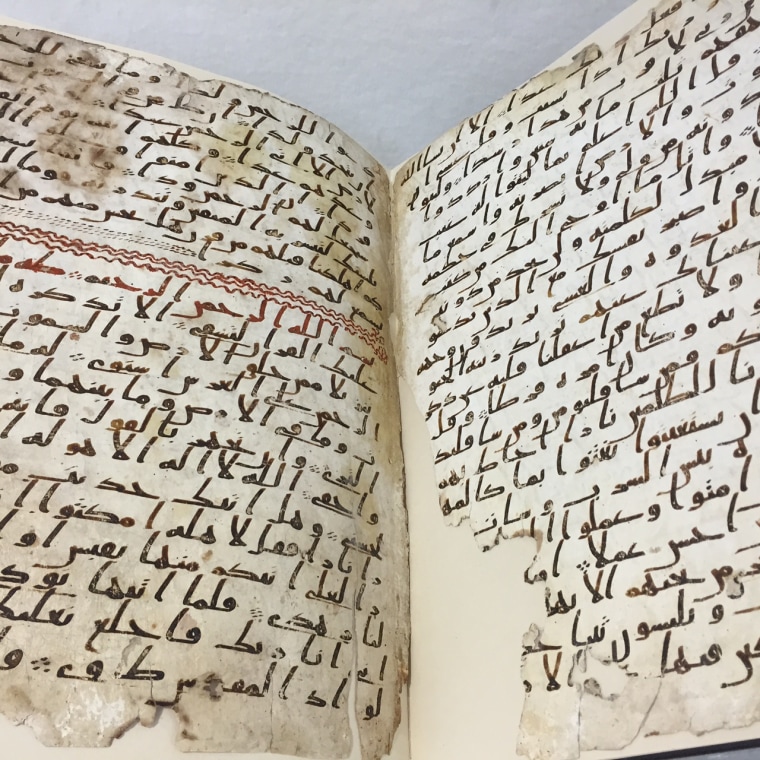LONDON – A manuscript found in a university archive could be one of the world’s oldest fragments of the Quran, experts said Wednesday after it was dated using radiocarbon analysis.

The pages of the Muslim holy text, held by the University of Birmingham in central England, come from the period between 568 and 645 AD, according to laboratory tests.
It is the same age as the Prophet Muhammad, who is generally thought to have lived between AD 570 and 632, the university said in a news release.
"The person who actually wrote it could well have known the Prophet Muhammad,” David Thomas, professor Christianity and Islam at the University of Birmingham, told the BBC. “He would have seen him … he would maybe have heard him preach. He may have known him personally — and that really is quite a thought.”
The carbon testing was carried out by scientists at the University of Oxford.
"It is a treasure of global significance to Muslim heritage and to the study of Islam"
Researchers believe the manuscript is among the oldest pieces of evidence of a Quran in existence.
The discovery has delighted representatives of the city’s large Muslim community.
Councillor Muhammad Afzal, who is the chairman of Birmingham Central Mosque, said: “I am honored to see this manuscript, which is unique. It goes back to the early stages of Islam. All the Muslims in the world would love to see this manuscript.”
The fragment is part of a collection of Middle Eastern manuscripts help in the university’s Cadbury Research Library, which was funded by Victorian-era businessman and Quaker philanthropist Edward Cadbury.
Consisting of two parchment leaves, it shows parts of Suras (chapters) 18 to 20, written with ink in an early form of Arabic script known as Hijazi. It had lain for decades alongside pages of a similar manuscript which dated from the late 7th century.
“It is a treasure of global significance to Muslim heritage and to the study of Islam … and a source of great pride to the local community," said Susan Worrall, director of special collections at the University of Birmingham.
